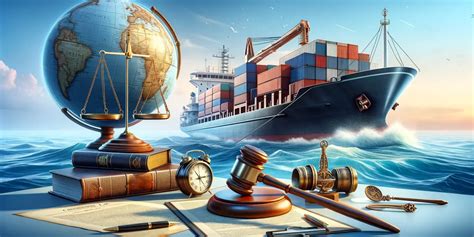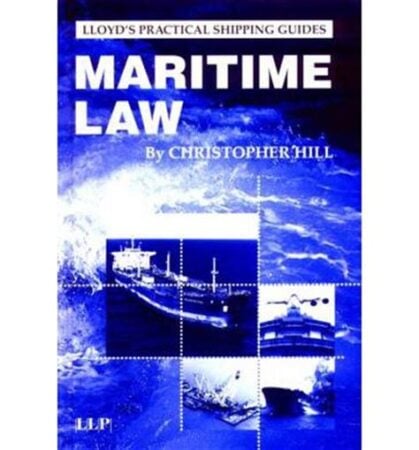
- Present Day Maritime Laws: A Comprehensive Guide for Navigating the High Seas in 2023
- Introduction
- Section 1: Safety of Navigation
- Section 2: Prevention of Pollution
- Section 3: Maritime Labor Rights
- Table: Key Present Day Maritime Laws
- Conclusion
-
FAQ about Present Day Maritime Laws
- 1. What are the International Maritime Laws?
- 2. What is the purpose of Maritime Laws?
- 3. Who enforces Maritime Laws?
- 4. What is the International Maritime Organization (IMO)?
- 5. What is the Law of the Sea Convention (UNCLOS)?
- 6. What are the main sections of Maritime Law?
- 7. What is the rule of "innocent passage" in Maritime Law?
- 8. What is the principle of "flag state jurisdiction"?
- 9. What are the legal consequences of violating Maritime Laws?
- 10. How do Maritime Laws evolve over time?
Present Day Maritime Laws: A Comprehensive Guide for Navigating the High Seas in 2023

Introduction
Hey there, readers! Welcome to our in-depth guide to present-day maritime laws, the rules and regulations that govern the vast expanse of our oceans. From sailing the open seas to docking in foreign ports, knowing these laws is crucial for ensuring a safe and compliant journey. So, grab a cup of your favorite brew, sit back, and let’s dive into the legal framework of the maritime world.
Maritime laws have a long and storied history, dating back to ancient times when seafaring nations established customs and practices to govern their interactions at sea. Over the centuries, these maritime laws have evolved and codified to meet the challenges of modern international shipping. Today, they encompass a wide range of topics, including:
- Safety of navigation
- Prevention of pollution
- Maritime labor rights
- Dispute resolution
Section 1: Safety of Navigation
Collision Avoidance Regulations
One of the most important aspects of present-day maritime laws is the prevention of collisions at sea. The International Regulations for Preventing Collisions at Sea (COLREGs) set out a comprehensive set of rules designed to keep ships clear of each other and avoid accidents. These rules cover everything from the display of navigation lights to the use of radar and sound signals.
Search and Rescue Operations
Maritime laws also provide a framework for search and rescue operations. The International Convention on Maritime Search and Rescue (SAR) establishes a global system for coordinating responses to distress calls at sea. This system involves a network of coast guards, search and rescue organizations, and merchant vessels that work together to save lives and prevent loss of property.
Section 2: Prevention of Pollution
MARPOL Convention
With the increasing awareness of the impact of human activities on the marine environment, present-day maritime laws play a crucial role in preventing pollution. The International Convention for the Prevention of Pollution from Ships (MARPOL) is a comprehensive treaty that regulates the discharge of harmful substances into the sea. It covers everything from oil and garbage to hazardous chemicals.
Ballast Water Management
Another significant environmental concern is the spread of invasive species through ballast water. The International Convention for the Control and Management of Ships’ Ballast Water and Sediments (BWM Convention) sets out requirements for managing ballast water to prevent the introduction of harmful organisms into new ecosystems.
Section 3: Maritime Labor Rights
International Labour Organization Conventions
Maritime laws also protect the rights of seafarers. The International Labour Organization (ILO) has adopted a series of conventions that cover a wide range of issues, including:
- Wages and working hours
- Health and safety
- Social security
- Dispute resolution
These conventions provide minimum standards for the treatment of seafarers and ensure that their rights are upheld.
Flag State Responsibility
Under present-day maritime laws, the flag state of a vessel is responsible for ensuring that the vessel complies with international conventions and regulations. This means that the flag state is responsible for:
- Issuing safety certificates
- Enforcing labor standards
- Investigating accidents
By holding flag states accountable, maritime laws help to ensure a level playing field and protect the rights of seafarers.
Table: Key Present Day Maritime Laws
| Law | Purpose | Scope |
|---|---|---|
| SOLAS Convention | Safety of life at sea | Passenger ships, cargo ships, tankers |
| MARPOL Convention | Prevention of pollution | All ships |
| COLREGS | Collision avoidance | All ships |
| SAR Convention | Search and rescue | All ships |
| BWM Convention | Ballast water management | All ships carrying ballast water |
| ILO Maritime Labour Convention | Maritime labor rights | Seafarers on merchant ships |
Conclusion
Readers, we hope this guide has shed light on the complex and ever-evolving landscape of present-day maritime laws. By adhering to these laws, we can ensure the safety of navigation, protect our marine environment, and uphold the rights of seafarers.
If you’re interested in learning more about this fascinating topic, check out our other articles on:
- The History of Maritime Laws
- The Role of International Organizations in Maritime Law Enforcement
- Emerging Trends in Maritime Law
May your voyages be safe and your waters be calm!
FAQ about Present Day Maritime Laws
1. What are the International Maritime Laws?
Answer: A set of principles and regulations governing maritime activities, including navigation, safety, pollution control, and dispute resolution.
2. What is the purpose of Maritime Laws?
Answer: To ensure safe, sustainable, and efficient shipping, protect the marine environment, and facilitate global maritime trade.
3. Who enforces Maritime Laws?
Answer: National maritime authorities, international organizations (e.g., IMO), and flag states (the country where a ship is registered).
4. What is the International Maritime Organization (IMO)?
Answer: A United Nations agency responsible for developing and maintaining global maritime laws and standards.
5. What is the Law of the Sea Convention (UNCLOS)?
Answer: A comprehensive treaty establishing a legal framework for the use and protection of the world’s oceans.
6. What are the main sections of Maritime Law?
Answer: Safety regulations, pollution prevention, dispute resolution, and maritime boundary disputes.
7. What is the rule of "innocent passage" in Maritime Law?
Answer: A principle allowing ships of one country to pass through territorial waters of another country for non-harmful purposes.
8. What is the principle of "flag state jurisdiction"?
Answer: The legal doctrine that gives a ship’s flag state (country of registration) primary responsibility for enforcing maritime laws on that ship.
9. What are the legal consequences of violating Maritime Laws?
Answer: Fines, imprisonment, seizure of vessels, and civil liability for damages.
10. How do Maritime Laws evolve over time?
Answer: Through international conventions, national legislation, and technological advancements that address emerging challenges.




